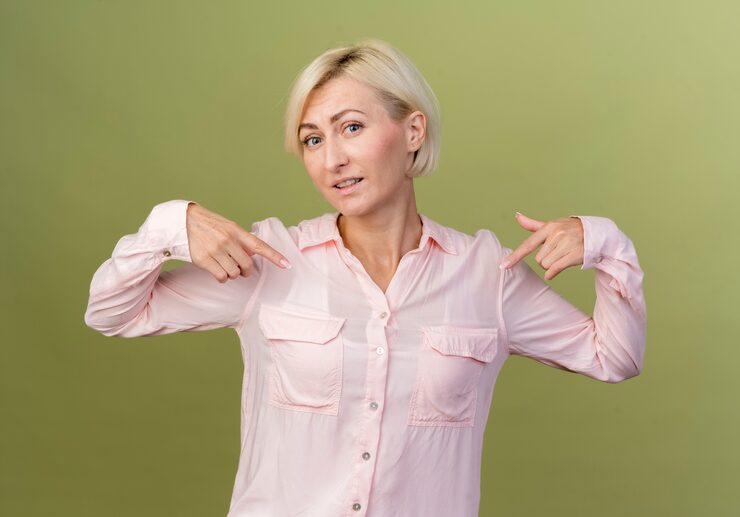A study estimates that about 6,000 women in the US enter menopause or perimenopause every day, totaling roughly 2 million a year. Despite these numbers, many women are unprepared for what this phase brings.
Dr. Karen Pike is a familiar name for those seeking information on menopause. She founded Simply Menopause to help older women understand what to expect and how to prepare. After years as a chief of staff at a leading US hospital, Dr. Pike saw that many women lacked the knowledge and resources to manage menopause. They often didn’t know how their bodies were changing, and consulting mostly male doctors sometimes left them more confused.

In this interview, Dr. Pike shares practical advice on what to expect during menopause and how to handle issues that go beyond hot flashes.
Interview with Dr. Karen Pike
Hello Dr. Pike—thank you for your time. Let’s jump into some common concerns women face during menopause.
Question: Many women know about hot flashes. How do they actually feel?
Dr. Pike: Thanks for having me. Hot flashes are like sudden waves of heat that move through your body. It’s hard to describe if you haven’t felt one. The heat usually starts in the center of your body and spreads to your face and limbs. Your face might flush and you can sweat a lot. Each episode can last several minutes, and the effects may take longer to fully pass. Beyond the physical discomfort, many women feel a sudden panic the first few times they experience them. If you aren’t expecting it, it can be embarrassing, especially in public.
Question: How should someone handle hot flashes?
Dr. Pike: First, remember this is a natural response as your body adjusts after menstruation stops. Try to track when hot flashes happen: how often, and whether anything seems to trigger them. Stress can make them worse, so avoid stressful situations when you can. Keep cold packs and chilled drinks on hand. Sit down, practice deep breathing, sip cool water, or turn on a fan or air conditioner. Once the episode passes, you can slowly get back to your activities.
Question: Besides hot flashes, what else might occur during menopause?
Dr. Pike: Menopause affects women differently, and factors like ethnicity and climate can matter. Common issues include anxiety, insomnia, dizziness, nausea, urinary tract infections, dry skin and hair, trouble concentrating, joint pain, and increased facial hair. Hormonal shifts can also cause lower libido and vaginal dryness.
Question: What are some ways to manage these problems?
Dr. Pike: Keeping a positive mindset helps, even though it’s not always easy. Society can make women feel less valued after their childbearing years, which adds stress. Talk with other women who’ve gone through menopause to learn from their experience. If possible, see a doctor—ideally a female physician experienced with menopausal care. Therapy can be very helpful, and if that’s not an option, joining a supportive community or leaning on close female friends can make a big difference.
Question: Does menopause affect breast size?
Dr. Pike: Yes. Lower estrogen can reduce breast tissue elasticity, causing sagging and sometimes more breast heaviness and tenderness—so a supportive bra is important. Some women gain weight during menopause, which can add fat to the breasts and make them larger. Staying active and eating well can help manage weight and breast changes.
Question: How do you address hormonal imbalances in this stage?
Dr. Pike: Balancing hormones is key. Early studies once discouraged hormone therapy, but individual needs vary. Adrenal health matters, and estrogen and testosterone can swing widely. You may need hormone therapy to stabilize levels, but tests are needed to determine the right approach. If left untreated, hormonal imbalances can lead to issues like osteoporosis and severe mood swings.
Question: Can women still live healthy, fulfilling lives after menopause?
Dr. Pike: Absolutely. The idea that women can’t be healthy or active after menopause is a myth. Staying active, cutting back on alcohol, eating well, and keeping up regular health checks can prevent many problems. Therapy helps if stress becomes overwhelming. For many women, post-menopausal years can be some of the best—no period cramps and more freedom to pursue personal goals.
Final Thoughts
Dr. Karen Pike’s advice offers reassurance for women entering menopause or navigating life afterward. Menopause doesn’t have to be overwhelming. Prioritizing self-care, staying active, and enjoying hobbies can reduce stress. For physical concerns tied to hormones, consult a doctor who specializes in women’s health. Dr. Pike, a senior physician administrator and emergency doctor, has used her research and experience to guide many women through this stage.